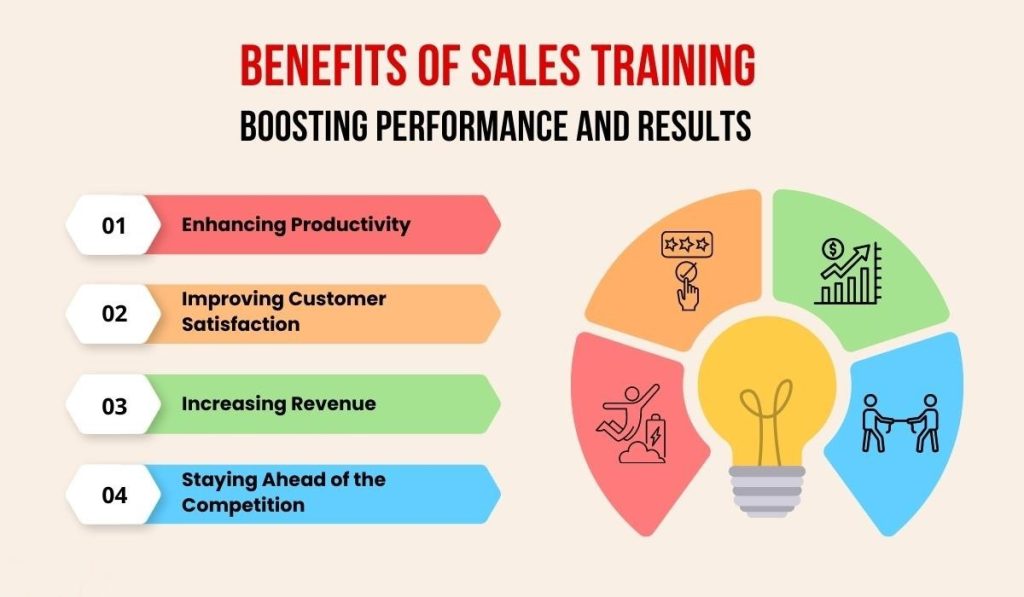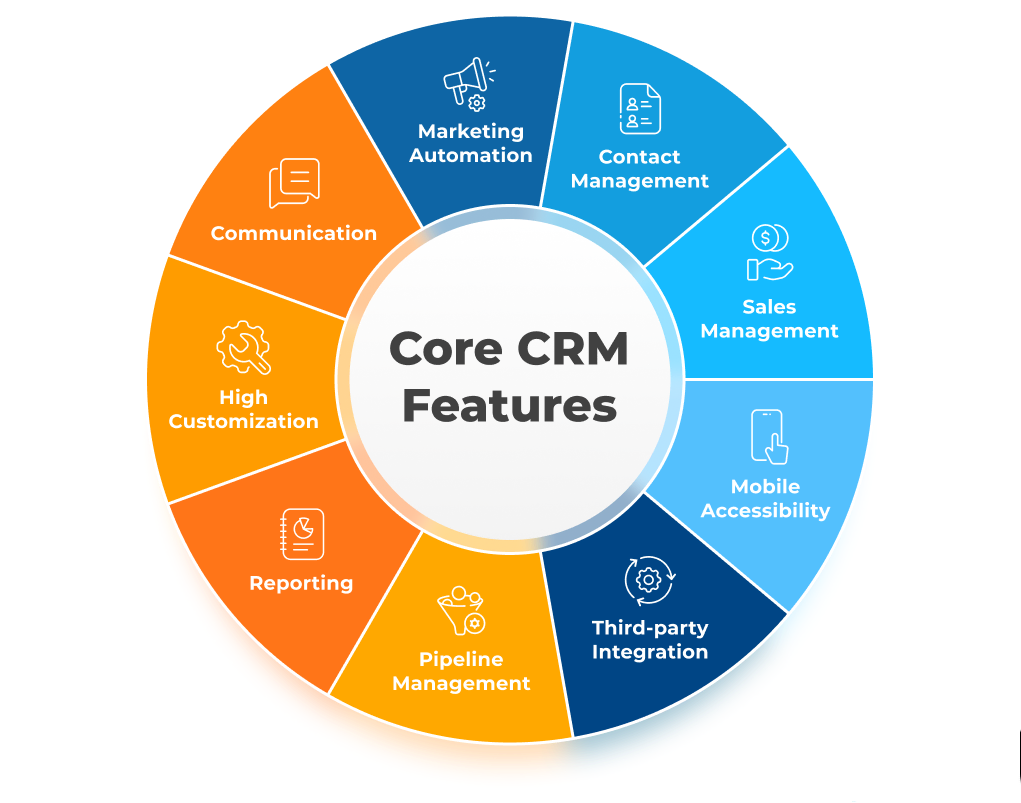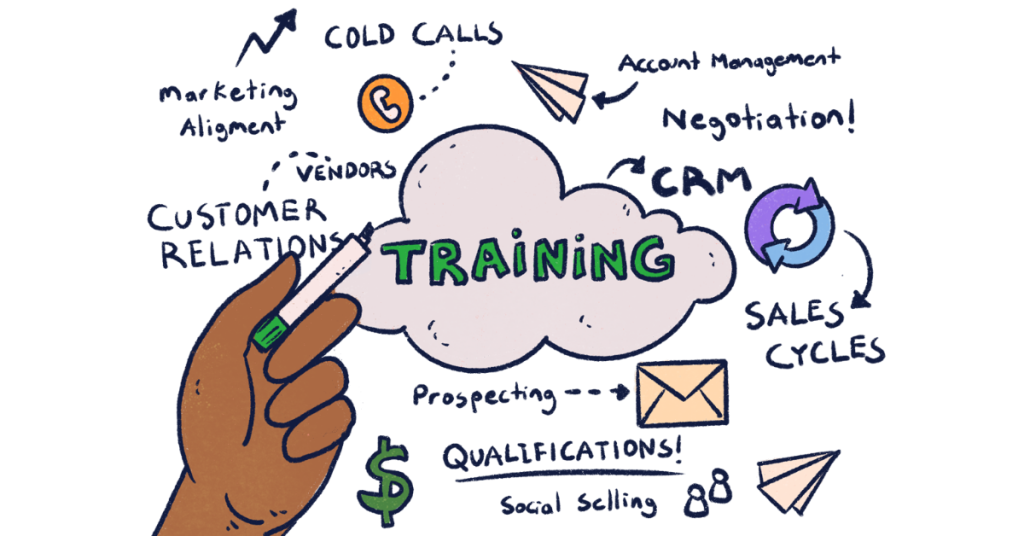Two fundamental cornerstones of effective sales tactics are customer relationship management (CRM) and sales training. Sales training provides sales representatives with the abilities, know-how, and strategies required to successfully engage clients and increase sales. Conversely, CRM systems give businesses the ability to track and evaluate consumer encounters, expedite sales procedures, and create enduring connections. This article examines the significance of CRM and sales training in today’s business environment, as well as their essential elements and effects on customer satisfaction and sales effectiveness.
The Importance of Sales Training
Sales training is essential for providing salespeople with the skills and knowledge required to succeed in their positions. Ongoing sales training guarantees that sales teams are prepared with the most recent product information, market expertise, and selling techniques, regardless of the experience level of new hires. A variety of subjects are covered in inefficient sales training programs, including customer relationship management, product understanding, handling objections, and sales methods. Organizations may enable their sales personnel to establish rapport with consumers, efficiently meet their needs, and confidently seal deals by allocating resources towards training.

Important Elements of Sales Training
To guarantee optimum impact and efficacy, successful training programs include many essential elements. Among them are:
Role-Specific Training
Customizing training curricula to meet the unique needs of sales professionals—whether they work in account management, field sales, inside sales, or sales leadership roles—is known as role-specific training.
Product and Industry Knowledge
Ensuring sales personnel have a thorough understanding of the solutions they are selling and the ability to successfully express their value proposition requires extensive training on goods, services, and industry trends.
Sales Tactics and Methodologies
Sales teams should be equipped with a range of selling tactics, such as relationship-based selling, challenger selling, and consultative selling, to enable them to tailor their approach to the unique needs and preferences of their customers.
Communication and Presentation Skills
Developing convincing presenting strategies, active listening skills, and communication abilities will help you engage customers, communicate value, and handle objections.
Sales Process and Pipeline Management
To optimize conversion rates and improve sales operations, sales personnel should receive training on lead qualifying, opportunity management, sales processes, and pipeline forecasting.
Continuous Learning and Development
To make sure that sales teams remain current on market trends and best practices, provide them with chances for ongoing training and development. These may include webinars, workshops, coaching sessions, and self-paced learning materials.
CRM’s function in customer relationships
CRM systems are strong instruments that let businesses track and examine client interactions through the sales process. CRM systems offer a comprehensive perspective of customer relationships by centralizing customer data, including contact details, purchase history, communication preferences, and engagement metrics. Sales teams can anticipate client demands, personalize conversations, and provide outstanding experiences at every touchpoint by adopting this holistic perspective. CRM systems also make it easier for teams in charge of sales, marketing, and customer service to collaborate and synchronize, ensuring that everyone is working toward the same objectives and providing consistent messages and high-quality service.
Explore More Closing the Deal: Sales Strategies Unveiled

Principal attributes and advantages of CRM systems
Numerous features and advantages provided by contemporary CRM systems enable businesses to improve consumer connections, expedite sales procedures, and spur expansion. Among the essential elements are:
Contact Management
Contact management is the process of keeping customer contacts, accounts, and leads organized and visible in a single, centralized database.
Sales Pipeline Management
Tracking sales prospects, projecting income, and controlling sales pipelines to rank leads and increase conversions is known as sales pipeline management.
Activity tracking
To guarantee prompt and individualized communication, keep track of all customer interactions, emails, calls, meetings, and follow-up tasks.
Reporting and Analytics
Creating personalized reports and dashboards to monitor important indicators, assess sales success, and spot patterns and areas for development.
Automation and Workflow Management
Increasing productivity and streamlining sales processes by automating repetitive tasks like lead scoring, email outreach, and follow-up reminders.
Integration with Marketing and Support Systems
To enable smooth data interchange and cross-functional cooperation, CRM systems are integrated with marketing automation tools, customer support software, and other business systems.

Future Trends in CRM and Sales Training
Many trends are influencing CRM and training of sales going forward, including:
Digital Learning and Virtual Training
To create adaptable and easily available training programs, and embrace digital learning platforms, virtual training sessions, and e-learning modules.
Predictive analytics and artificial intelligence (AI)
Using AI and predictive analytics to assess customer data, forecast purchasing patterns, and suggest tailored sales tactics and activities.
Mobile CRM and Remote Sales Enablement
Enabling seamless access to customer data and sales resources for distant sales teams through the provision of mobile-friendly CRM applications and solutions is known as mobile CRM and remote sales enablement.
Integrated Sales and Marketing Automation
Personalized marketing campaigns, customer interaction metrics, lead creation, and conversion are all facilitated by the integration of CRM systems and marketing automation platforms.
Stressing Emotional Intelligence and Soft Skills
Acknowledging the value of soft skills in creating rapport and enduring connections, such as empathy, active listening, and emotional intelligence.
In summary
CRM systems and sales training are essential resources for any company looking to enhance customer interactions, boost revenue, and spur expansion. Organizations can gain a significant competitive edge in the fast-paced business world of today by investing in programs that equip sales professionals with the abilities and know-how necessary to engage customers effectively and by putting CRM systems in place that facilitate personalized interactions, streamlined processes, and data-driven decision-making. Both of them will become more and more important in determining how sales and customer interactions develop in the future as technology and customer expectations change.










